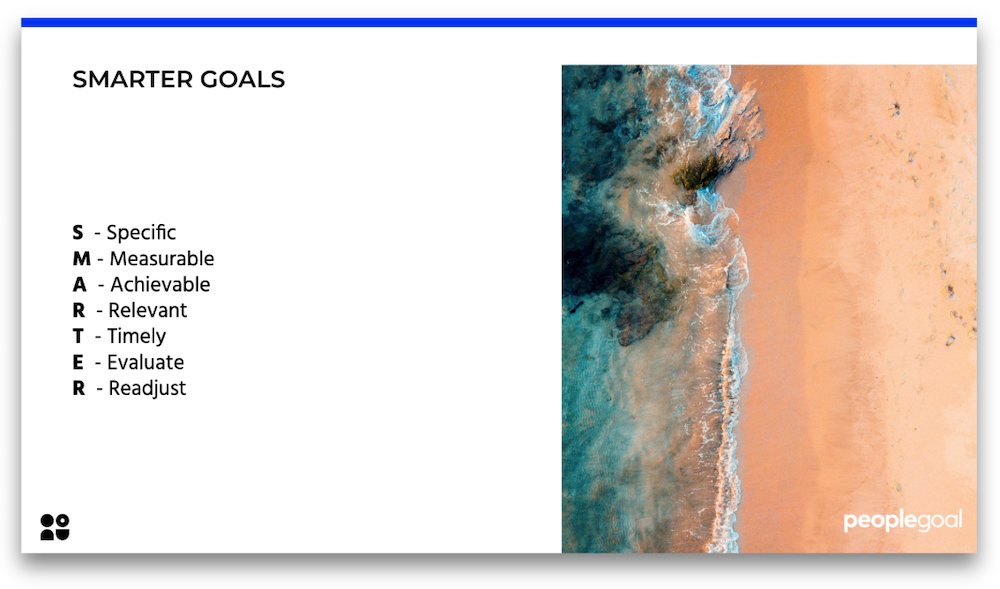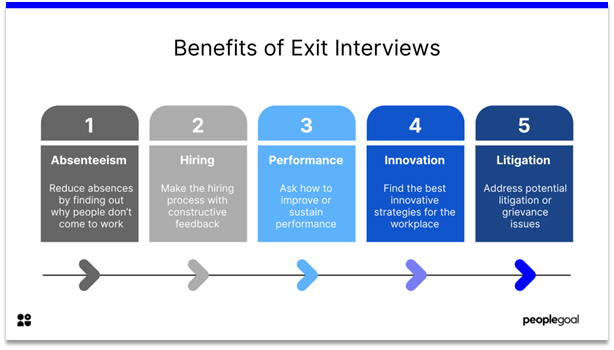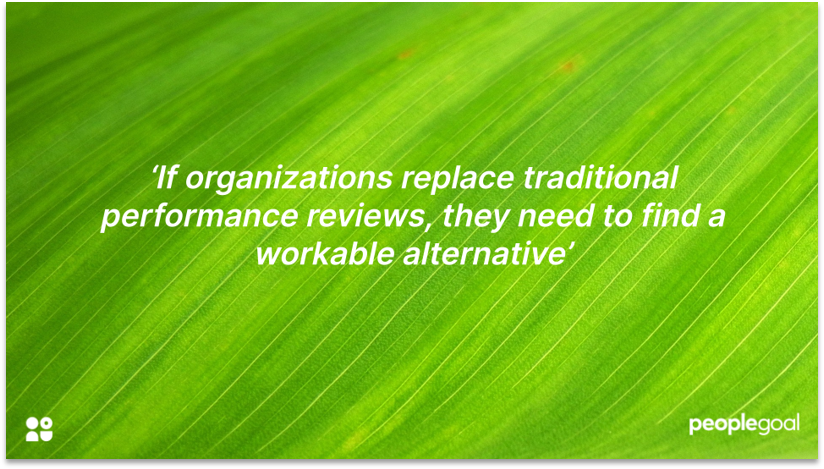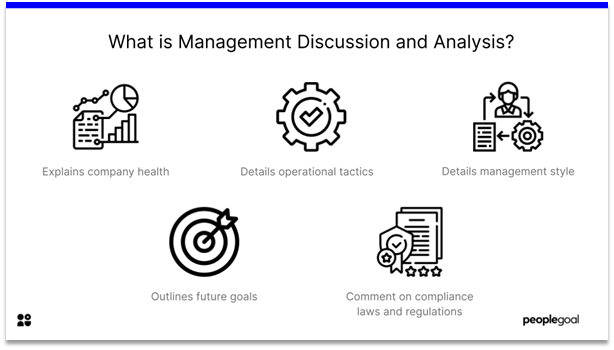Professional development is a key driver for employee engagement and retention. Organizations that promote and invest in development perform better, and have a happier, more productive workforce. However, growth and development isn’t the sole responsibility of management, and to be most effective, employees must take ownership of their learning journey by setting personal development goals. Taking a proactive role in your personal development will motivate and inspire you to achieve outstanding growth. In this article, we explore how to set development goals at work that will have the most impact on performance.
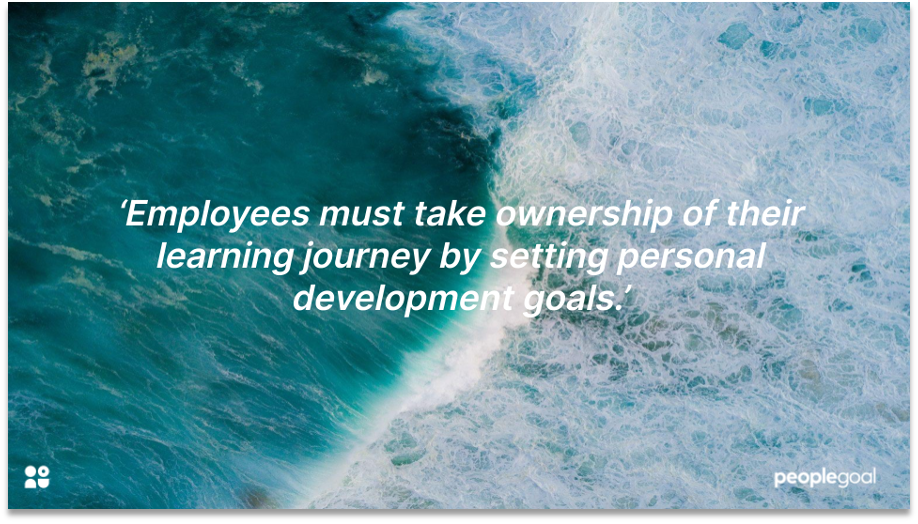
What are Personal Development Goals?
Personal development is any activity that aims to improve a particular skill, behavior or increase your knowledge in a specific area. It helps you fulfil your performance objectives, achieve your career goals and improve certain aspects of your performance. More specifically, personal development goals are objectives that help drive personal and professional growth. They should be set in tandem with performance goals, but the key difference is that they are aspirational and should not be used to assess performance.
Setting personal development goals will provide you with a clear sense of direction enabling you to achieve success in your role as well as take your career to the next level. They are more actionable, accountable and overall more useful than PDP or development plans as they are reviewed and updated on a regular basis.
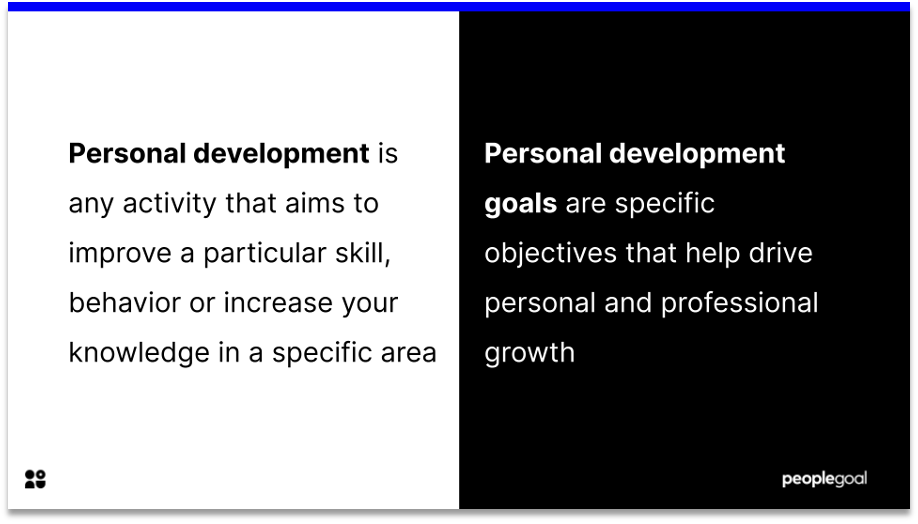
Benefits of setting Personal Development Goals
- Improve job performance
- Benefit from internal and external training opportunities
- Develop skill set
- Increase motivation
- Boost resilience
- Better chance of promotion
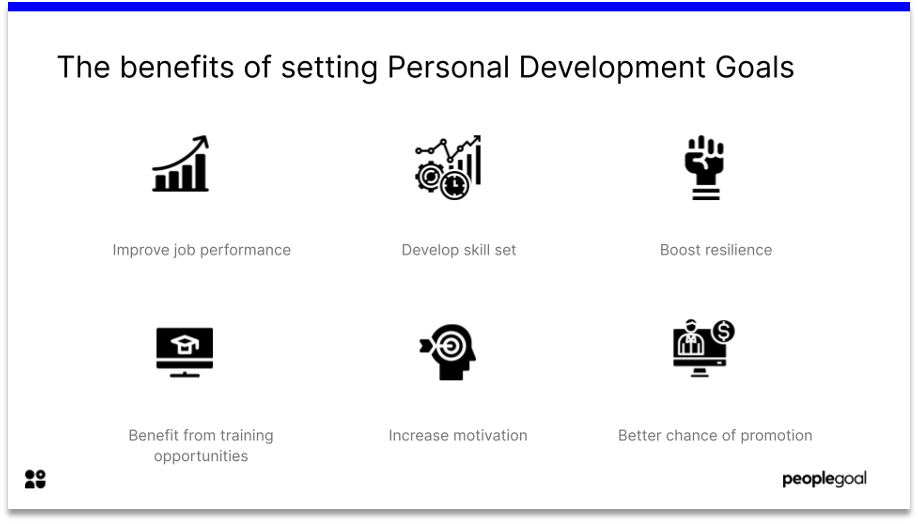
How to set Personal Development Goals
1. Define personal development goals
First of all you need to establish your personal development needs by designing 3-6 development goals that outline where you want to go in your career. They should cover a range of themes, from personal growth, hard skills, relationship building and leadership. We recommend splitting your goals into three sections: short term (that you hope to achieve within the next year), mid term (within 2 years) and long term (2-5 years). Be realistic about the timeframes and keep your goals aligned with the business needs and your job role; your development plan should not be separate from your day to day responsibilities.
Keep the 70/20/10 rule in mind: 70% of your learning should come from on the job experience, 20% from informal experience from others and 10% from formal training or courses.
2. Identify personal skills gaps
After drawing up your development objectives, it is vital to identify the gaps in your skill set. What skills do you need to gain your next promotion? Research the job descriptions a few levels above you, and take note of where your gaps are. If you have received feedback recently (360 feedback, peer evaluation or manager feedback) take time to read through it again and focus on your weaker areas. At this stage, it is also really important to sit down with your manager and/or mentors to discuss how they view your work and ask how they got to where they are.
3. Create an action plan
Next, you need to outline how you will achieve your development goals and fill the skills gaps. What skills and competencies do you need to develop, and how will you acquire these? What tools, training and resources do you require? What activities would you like to carry out as opportunities to further your learning? It is your responsibility to map out how you will achieve your objectives, with support from your manager who should be on hand to remove any roadblocks.
4. Track progress with regular check-ins
Reflection and self-adjustment are vital parts of the development process. It is not enough to set personal development goals annually, instead you should sit down with your manager on a regular basis to review progress towards objectives. This is the ideal time to check-in on progress, discuss any obstacles and receive vital feedback and coaching. Development goals are not set in stone – they should grow and change with you!
5. Keep looking to grow!
Last but not least, keep looking for ways to learn and enhance your knowledge whether it falls under your development objectives or not. Be proactive and seize opportunities when they arise. Professional development is a continual process that is influenced by many factors, and you should not feel limited by your objectives. Instead, see them as a springboard that will boost you to the next level.
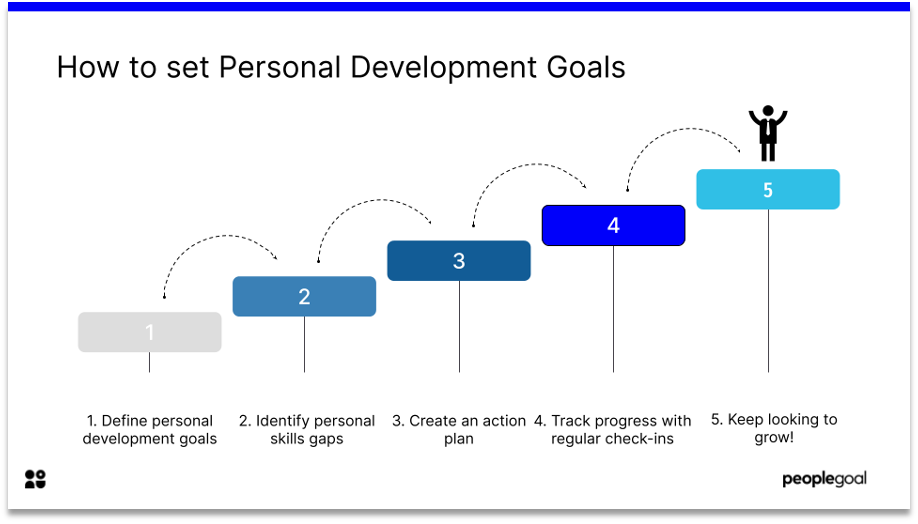
- Want to find out more about development plans? Check out our blog posts Employee Development Plan: How to Create a Plan that Works and Development Plans: 5 Steps to Employee Growth.
- Interested in setting up employee development initiatives at your organization? Book a demo with one of our development experts today!
Ready to 3x Your Teams' Performance?
Use the best performance management software to align goals, track progress, and boost employee engagement.


